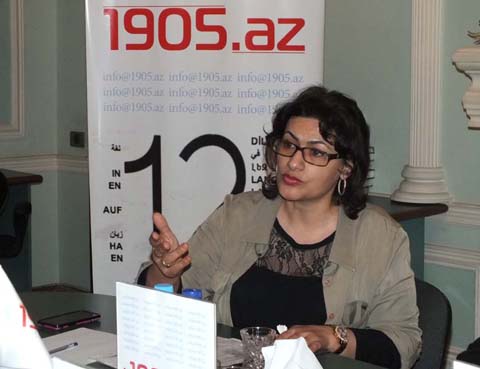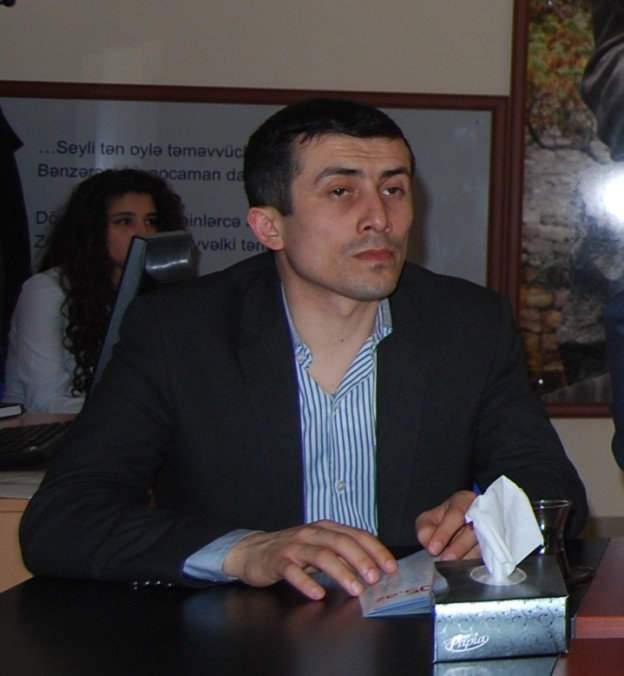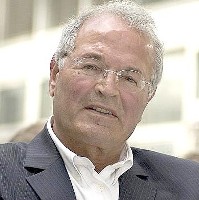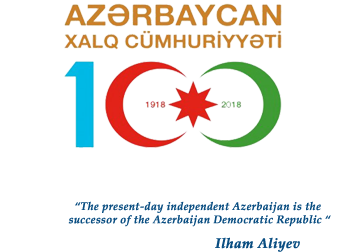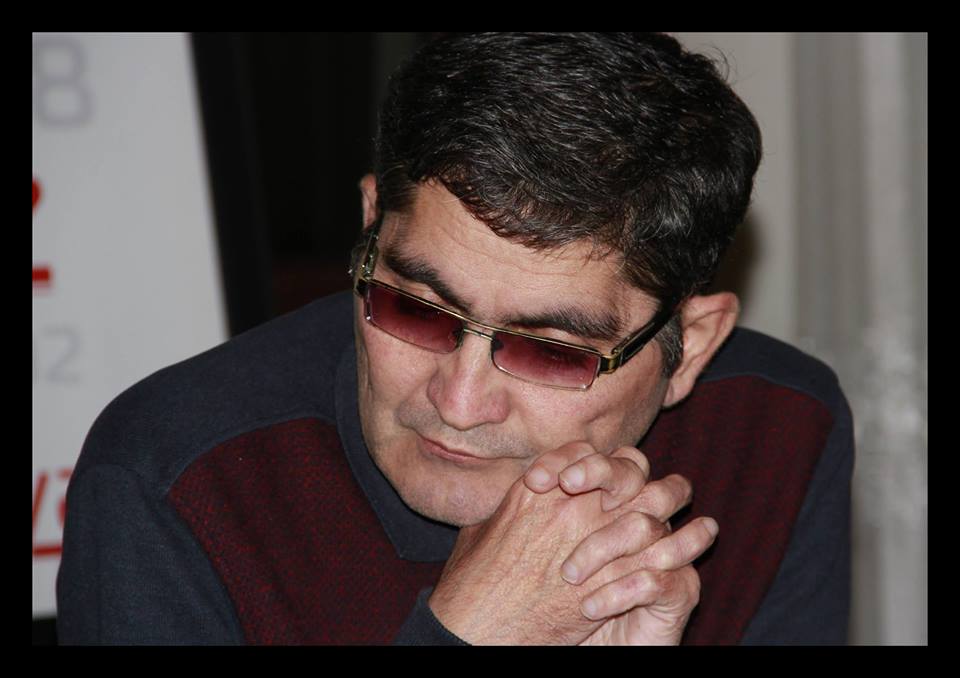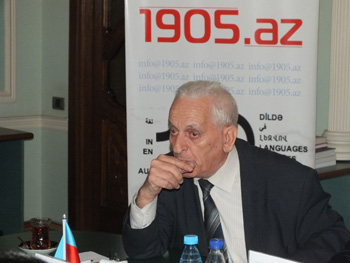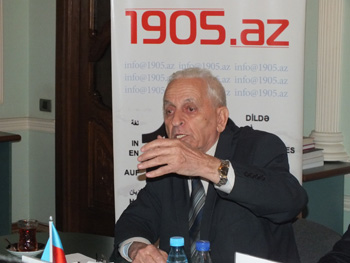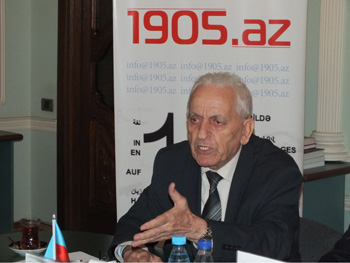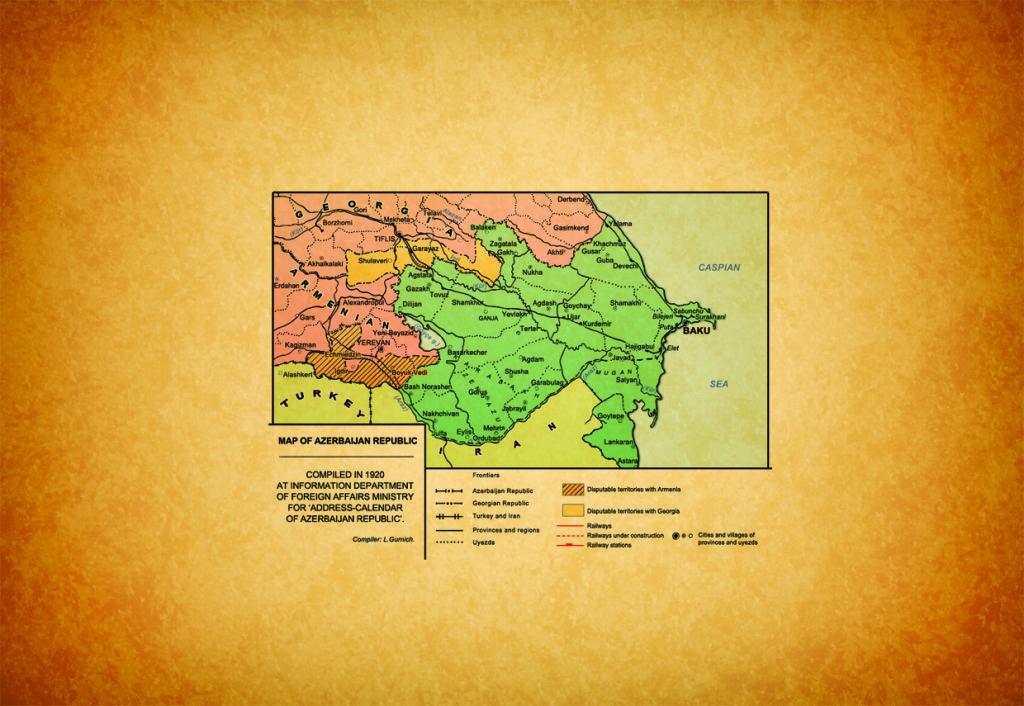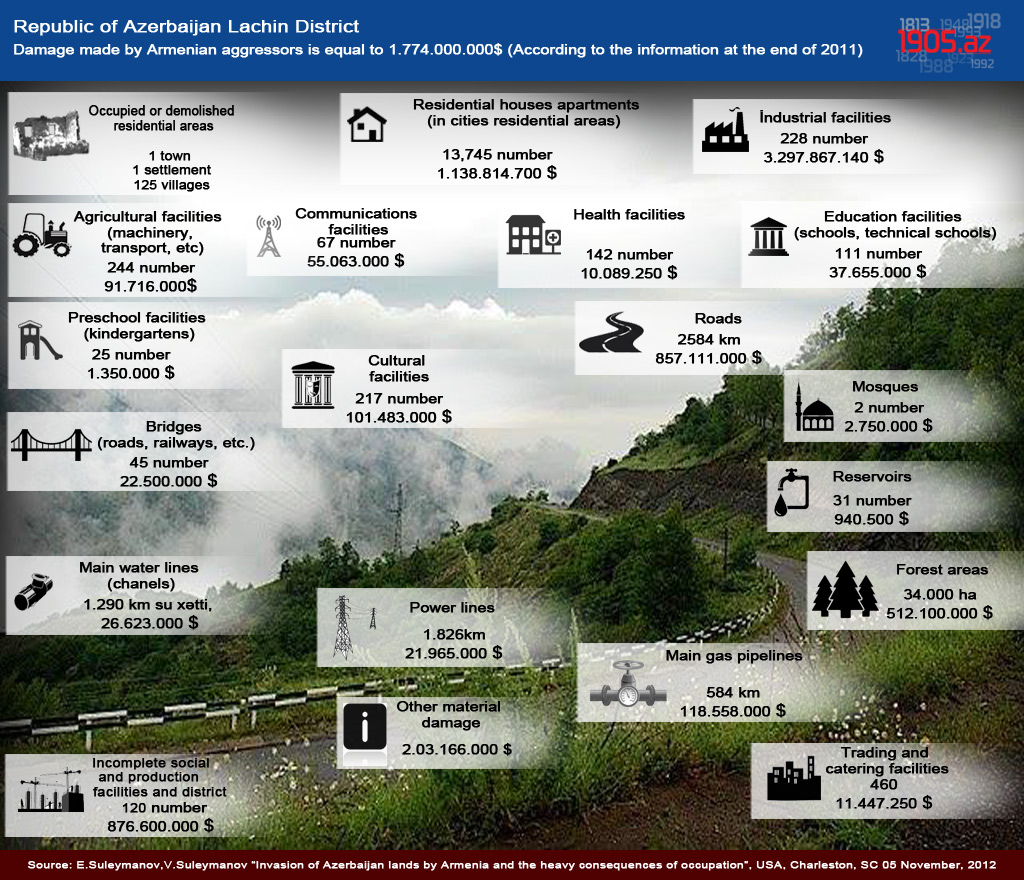Question: Mr. Ter-Petrosian, why is it difficult for you to officially recognize Azerbaijan`s territorial integrity according to the principles of the UN and OCSE Armenia is also a member of? As known, it is the very obstacle for a joint declaration of three leaders of the South Caucasus. What is your opinion on Kocharyan`s statements on granting Nagorno-Karabakh independence, which means establishment of the second Armenian state?
Levon Ter-Petrosian: Let me answer your first question on why Armenia doesn’t recognize Azerbaijan`s territorial integrity. I have a counter-question: why does Azerbaijan not recognize Nagorno-Karabakh`s right of self-determination?
Reporter`s answer: Azerbaijan recognizes Nagorno-Karabakh`s right of self-determination within the framework of Azerbaijan`s territorial integrity according to the UN principles.
Question: Mr. Ter-Petrosian, Armenia refused signing the declaration on recognition of sovereignty, territorial integrity, and inviolability of borders of the member-states of the commonwealth. How could you explain Armenia`s position on recognition of territorial integrity of the CIS nations, including Azerbaijan? As you know, the mediators think Armenia and Azerbaijan should make mutual concessions in order to end the conflict. The Azerbaijani President has repeatedly stated that Azerbaijan is ready to make concessions and grant Nagorno-Karabakh the highest autonomy. Is Armenia as a UN member ready to recognize Azerbaijan`s territorial integrity? My next question is addressed to both Heydar Aliyev and Armenian President: the yesterday`s official information stated that the solution of the conflict should be based on implementation of international principles. What did you mean by saying that?
Levon Ter-Petrosian: I have answered the first question. As for the second one, when talking about international rights we mean ten principles respected by all. They all have the same power. As for the status of Nagorno-Karabakh, this matter must be solved by the population of Nagorno-Karabakh.
Heydar Aliyev: Of course, we mean all international law norms under the notion of implementation of international law norms. A number of notions are included and none of them is excluded.
Question: What do you think about the attempts of Moscow to restore the Soviet Union within its former borders?
Eduard Shevardnadze: I consider it unacceptable. You probably imply the State Duma`s decision called by Yeltsin shameful. I think it is an exact evaluation. Let me add that with this decision the State Duma encourages NATO`s eastward expansion.
Levon Ter-Petrosian: You know that the Communists threaten to return to power in the former Soviet Union, especially in Russia. On behalf of Armenia I want to assure you that Armenia will never give up its sovereignty and enter any union within the borders of the former Soviet Union. But the return of the Communists is a big threat not only to post-Soviet nations, but also to Europe and the entire world. Touching the matter mentioned by Mr. Shevardnadze, I want to note that maintaining democracy in Russia is far more important for security of Europe than NATO`s expansion. Now the main challenge for the world is not to let the Communists return to power in Russia.
Heydar Aliyev: I want to speak honestly and I think I express the opinion of the Azerbaijani people by this. As the President, I have a negative attitude towards the restoration of the Soviet Union and the tendencies in Russia on restoration of the Communist regime. Azerbaijan will never give up its independence. Azerbaijan`s independence is a historic achievement so we will never join any union, like USSR. If the authors of this idea hope to reach something they are very wrong. There is a threat of return of the Communists in Russia. I think democratic forces should prevent it. Development of democracy in Russia is of great importance not only for Russia, but also for other democratically developing post-Soviet nations.
Question: Mr. Aliyev, you stated that democratic elections were held in Azerbaijan. There are 30 parties and free press in Azerbaijan. International observers of OSCE characterized the elections in Azerbaijan as undemocratic and unfree. Political parties and free press are banned. What is the controversy here?
Heydar Aliyev: Your question is biased. I stated that 30 registered parties function freely. Nine parties are represented in the democratically elected parliament and some of them are opposition parties. Democracy is being established in all spheres in Azerbaijan. You should ask the sources you are citing why they issue such statements.
Question: The document signed today implies cooperation and integration with Europe. But it seems to me the Caucasian integration is not less important. Do you believe in possibility of the Caucasian integration? How can the document signed today help it?
Levon Ter-Petrosian: In my opinion, this question will first be answered by initiators of the “Caucasian house”. Later I`ll join their thoughts.
Eduard Shevardnadze: We think today is a historical day for Georgia and other countries of the South Caucasus. First, we start our integration into the Europe. Second, Europe begins to realize the importance of the Caucasus for Europe and for the whole world. The European Union is the best example in the world on interstate integration. This experience has been gained for decades. So, while signing a treaty with the EU, we mean integration within the South Caucasus and with Europe on its basis is possible. By the way, the treaty we signed with the EU does not contradict our obligations within the framework of the CIS and the Black Sea economic cooperation organization.
Heydar Aliyev: Undoubtedly, today`s event is of historical importance. The integration with Europe is an important means for the South Caucasian nations to fulfill the integration with global economy, development of democracy, and democratic reforms. The help and humanitarian aid of the EU, as well as its assistance on implementation of different market reforms prove that the integration will be effective and useful. Of course, this integration also includes integration within the South Caucasus.
I want to answer the question on possibility of the Caucasian integration. Indeed, this integration is possible. For example, there is a tight integration between Azerbaijan and Georgia. Recently, we signed a number of documents in Tbilisi. Mr. Shevardnadze and I, as well as other representatives of Georgia and Armenia, imply a large program on integration. Evidently, close integration between Azerbaijan and Armenia is also possible. In this regard, in the meeting with Mr. Ter-Petrosian last night, we said we need to solve the conflict, establish peace, and sign a peace treaty. I have no doubt that economic relations will develop rapidly afterwards. I believe it.
Levon Ter-Petrosian: I also want to add that I believe in close cooperation of the South Caucasian nations. As a historian I can say it is unavoidable. The South Caucasus is historically the region of three nations. Their destinies have been attached to one another during centuries. Separation in the region is our disaster now. Thanks God, it depends on a small problem now. Heydar Aliyev mentioned good relations between Azerbaijan and Georgia. I can say the same words about the relations between Georgia and Armenia. There is a small problem left, which is the regulation of the relations between Azerbaijan and Armenia. Therefore, we need to settle the Karabakh problem. There is one obstacle in this case. Even the Abkhazian conflict, which is hard problem for Georgia does not harm the relations among the South Caucasian nations. The happy day, once we settle the Karabakh problem, will bring about this integration, too. Because we can`t exist without it. In one of my recent speeches in Armenia I said that both Azerbaijan and Armenia had lost the most natural economic partner for themselves. Azerbaijan has lost Armenia as an economic partner, so has Armenia lost Azerbaijan, too. They are the most natural partners. The necessity of this partnership has been proved in history. After the restoration of this partnership both our countries will obtain big potential for economic progress. Not only do I believe it, but I also think we must struggle for this goal.
Heydar Aliyev: Let me add that it is necessary to end the military conflict, withdraw the armed forces from the occupied territories of Azerbaijan and return one million refugees to their homeland in order to solve the Nagorno-Karabakh problem. They are crucial factors of the conflict resolution. I state once again that Azerbaijan is ready to grant Nagorno-Karabakh the high self-governing status within the territorial integrity of Azerbaijan.
Question: Distinguished presidents, what is your attitude towards the Chechen conflict? How can this conflict be settled in your opinion?
Eduard Shevardnadze: I think the answer is simple. Chechnya is part of the Russian Federation. We all support the territorial integrity of our countries and Russia. As for the conflict, I have always supported its peaceful solution. I think the latest initiatives of the Russian president imply peaceful solution of the conflict.
Levon Ter-Petrosian: My answer to the question is standard: since I couldn’t solve the Karabakh problem yet, I consider it immoral and unethical to answer this question. I can give my advices on solution of the Chechen problem after we settle the Karabakh problem.
Heydar Aliyev: We have always been against separatism and supported territorial integrity, inviolability of borders of any country, of Russia, in this case. What happens in Chechnya is a result of separatism we have always condemned. The war is underway, the blood is being shed. These all concern us. I think the Russian government is able to find the most acceptable solution of the conflict based on the principle of territorial integrity.
Question: Mr. Shevardnadze, how can the European structures and Russia influence solution of the conflicts in the Caucasus?
Eduard Shevardnadze: In my speech today I said that progress had been achieved in settlement of the Georgian-Ossetian conflict. The European security bodies, especially the EU play an important role in it. Together with Russia, they carry out intermediary mission. It also shows that the EU can play a more important role in solution of the conflict in the Caucasus after signing such an important treaty.
Question: Distinguished presidents, today you met the German Foreign Minister Klaus Kinkel. Did you want to show Germany`s special role in the Caucasus?
Levon Ter-Petrosian: If you were invited by a foreign minister of another country to breakfast, would you speak of that country`s special role? It is merely a coincidence.
Eduard Shevardnadze: I am happy to have sincere relationship with leaders of all the countries, including European countries. As for Germany and Mr. Kinkel, perhaps the German aid to the establishment of the Georgian state and to our economic revival is appreciative.
Heydar Aliyev: We praise any country that can help us solve the Armenian-Azerbaijani conflict and restore Azerbaijan`s territorial integrity and sovereignty. Germany is one of the largest countries of Europe. I have great respect and sympathy to Germany and to the German Foreign Minister.
Question: Mr. Aliyev, what did you mean when you talked about high autonomy you promise to grant to Karabakh?
Heydar Aliyev: The highest autonomy status that is available in world practice. Different countries include autonomous entities with statehood attributes, but those attributes must fully suit the national attributes those autonomies are incorporated into. I mean it. In order to make it clear and concrete, I mean the highest autonomy status that is available in world practice. Show me any autonomy in world practice, and I will accept it.
Question: The question is addressed to the Armenian President: Is Armenia ready to join the Tbilisi declaration for the peaceful Caucasus? The next question is addressed to Mr. Shevardnadze: can we consider EU`s enlargement a stronger basis for regional security when comparing it with NATO`s eastward expansion?
Levon Ter-Petrosian: I have almost answered your question. I support the idea of the Caucasian integration and consider it of a historical necessity. As for Armenia`s formal joining the Tbilisi declaration, there are two points here: first, we haven’t participated in the elaboration of the document. Second, Armenia will take this issue into consideration only after the solution of the Karabakh problem.
Eduard Shevardnadze: In my opinion, putting NATO`s eastward expansion and EU`s enlargement face to face is not appropriate at all. They have different functions and purposes. I noted earlier that EU`s eastward enlargement does not challenge the interests of CIS, the Black Sea Economic Organization or other regional organizations. So I think this enlargement is an important guarantee of security for all regions, including the South Caucasus.
Question: Distinguished presidents, how do you assess Russia`s role in settlement of the conflicts in the Caucasus both in the past and in future?
Eduard Shevardnadze: Russia takes an active part in solution of the Abkhazian and Georgian-Ossetian problems. In my opinion, Russia`s participation and peacemaking activity will be useful, maybe even decisive. But if the solution of the conflicts is based on the principles reflected in relevant resolutions of the UN Security Council and union countries. You are aware of our unique geographic situation. Russia can settle the Abkhazian problem within a short time, if they want to. But the problem is that there are different forces and trends in Russia. Sometimes such a composition of political spectrum prevents the settlement process, including the settlement of the Abkhazian conflict.
Levon Ter-Petrosian: Russia`s close participation in solution of all the conflicts in the former Soviet Union is a necessary factor for their successful solution. These conflicts will never be settled without Russia`s participation.
Heydar Aliyev: Russia takes an active part in solution of the Armenian-Azerbaijani conflict. Russia is a co-chair of the OSCE Minsk Group. We cherish big hopes on Russia`s activity. We have been cooperating with Russia for many years, and we intend to continue this cooperation even further. In my opinion, Russia has great potential to end the conflicts in the Caucasus, particularly the Armenian-Azerbaijani conflict over Nagorno-Karabakh. I hope Russia will use its potential.
Question: Why did Azerbaijani and Armenian presidents not use the opportunities of this visit to meet and discuss the solution of the Nagorno-Karabakh problem?
Levon Ter-Petrosian: Azerbaijani and Armenian presidents used the opportunity of being in Luxembourg and met very late last night. The meeting lasted an hour. Last night we almost concluded the current situation on the solution of the conflict and agreed on the measures we are going to carry out next months. We mean to maintain the cease-fire regime, intensively continue the dialogue between Azerbaijan and Armenia, solve humanitarian problem, and liberate all prisoners of wars. We declared joint official statement on the results of the meeting. All points I just counted are included there.
Heydar Aliyev: I agree with the information of Mr. Ter-Petrosian, so I will not repeat him. I just want to add that when I arrived in Luxembourg yesterday I asked whether Mr. Ter-Petrosian was here. After he came to Luxembourg I sent my advisor Vafa Guluzade to him. They came to an agreement and we met late at night. We had a long talk. The outcomes of the meeting and our deals are reflected in our joint statement. Mr. Ter-Petrosian has already informed about the content of the statement.

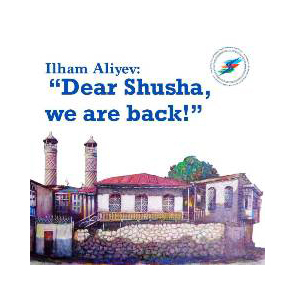
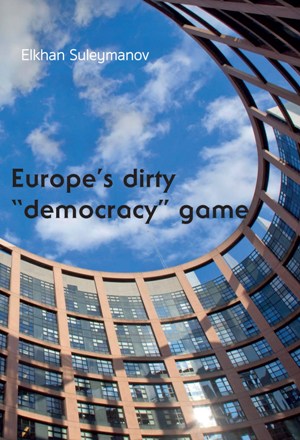
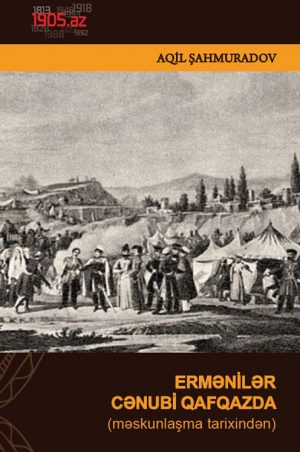
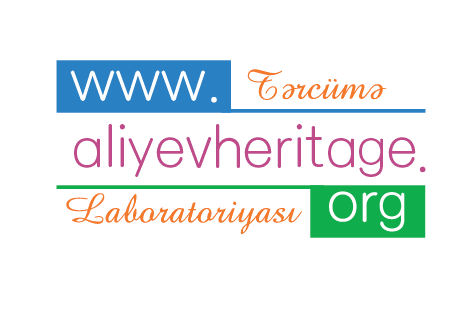




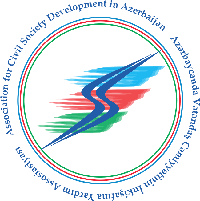
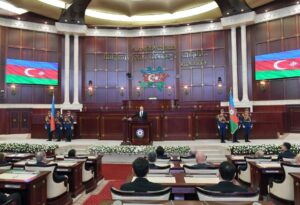 Inauguration ceremony of President of Azerbaijan Ilham Aliyev was held
Inauguration ceremony of President of Azerbaijan Ilham Aliyev was held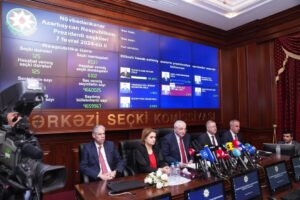 Ilham Aliyev wins presidential election with 92.05 percent of votes VIDEO
Ilham Aliyev wins presidential election with 92.05 percent of votes VIDEO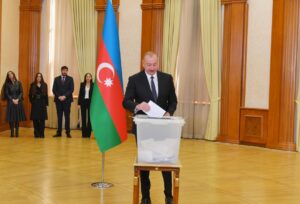 President Ilham Aliyev, First Lady Mehriban Aliyeva and family members voted in Khankendi VIDEO
President Ilham Aliyev, First Lady Mehriban Aliyeva and family members voted in Khankendi VIDEO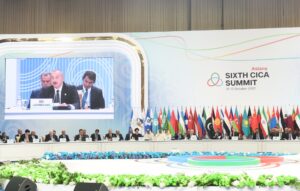 Plenary session of 6th Summit of Conference on Interaction and Confidence Building Measures in Asia gets underway in Astana. President Ilham Aliyev attends the plenary session VIDEO
Plenary session of 6th Summit of Conference on Interaction and Confidence Building Measures in Asia gets underway in Astana. President Ilham Aliyev attends the plenary session VIDEO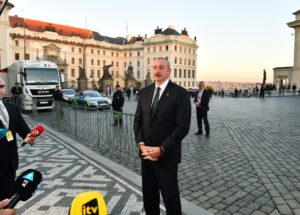 President Ilham Aliyev was interviewed by Azerbaijani TV channels in Prague VIDEO
President Ilham Aliyev was interviewed by Azerbaijani TV channels in Prague VIDEO



